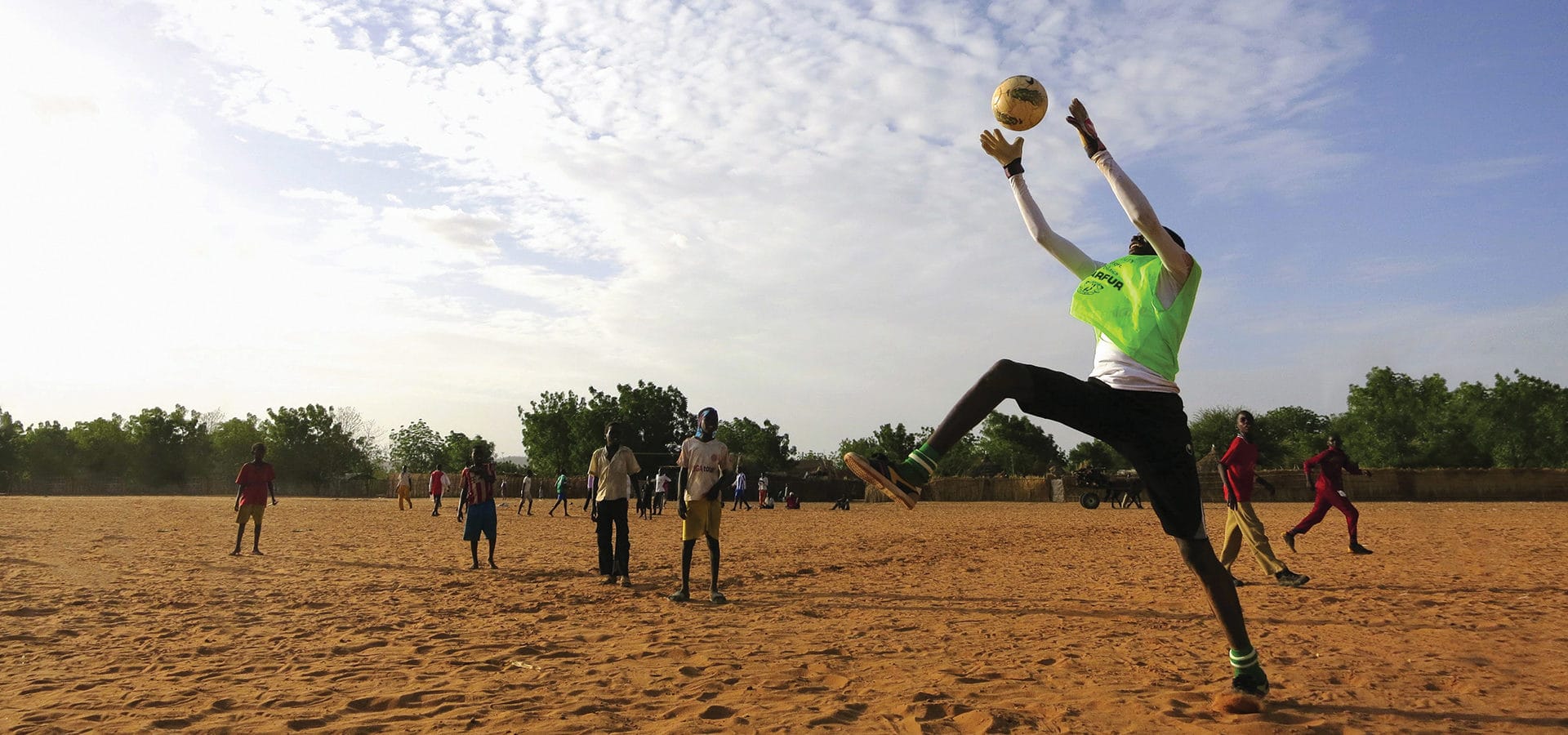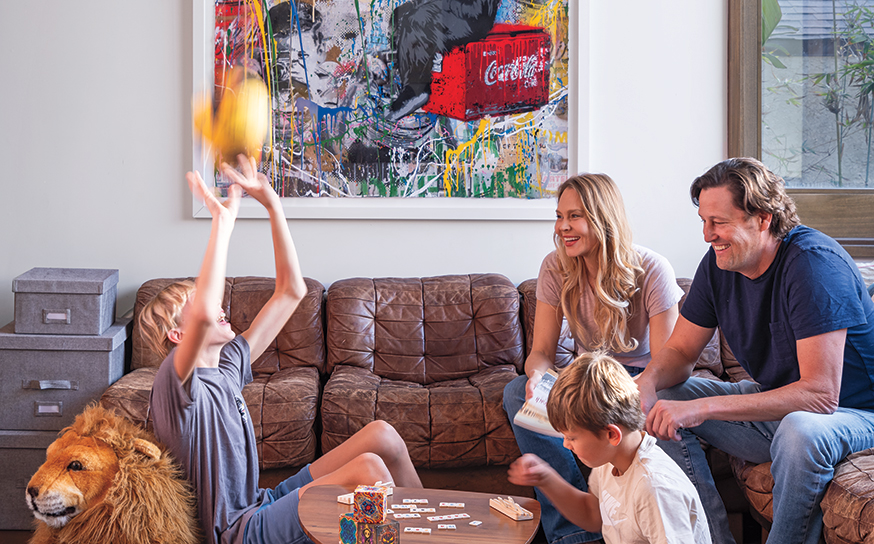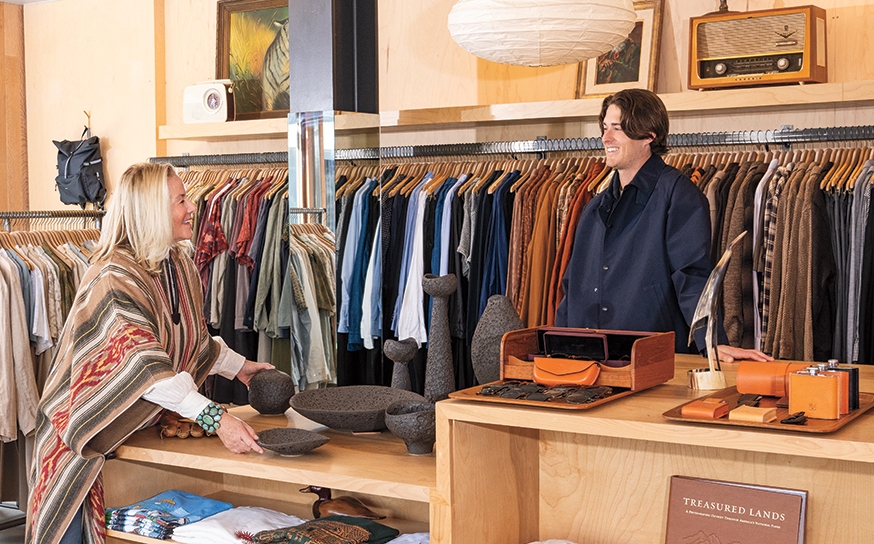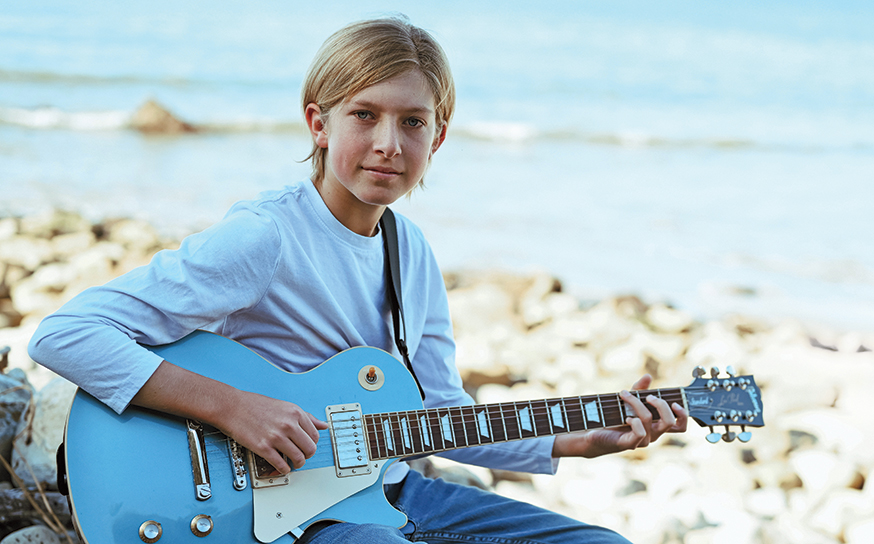“You have never really lived until you have done something for someone who can never repay you.” – Mother Teresa
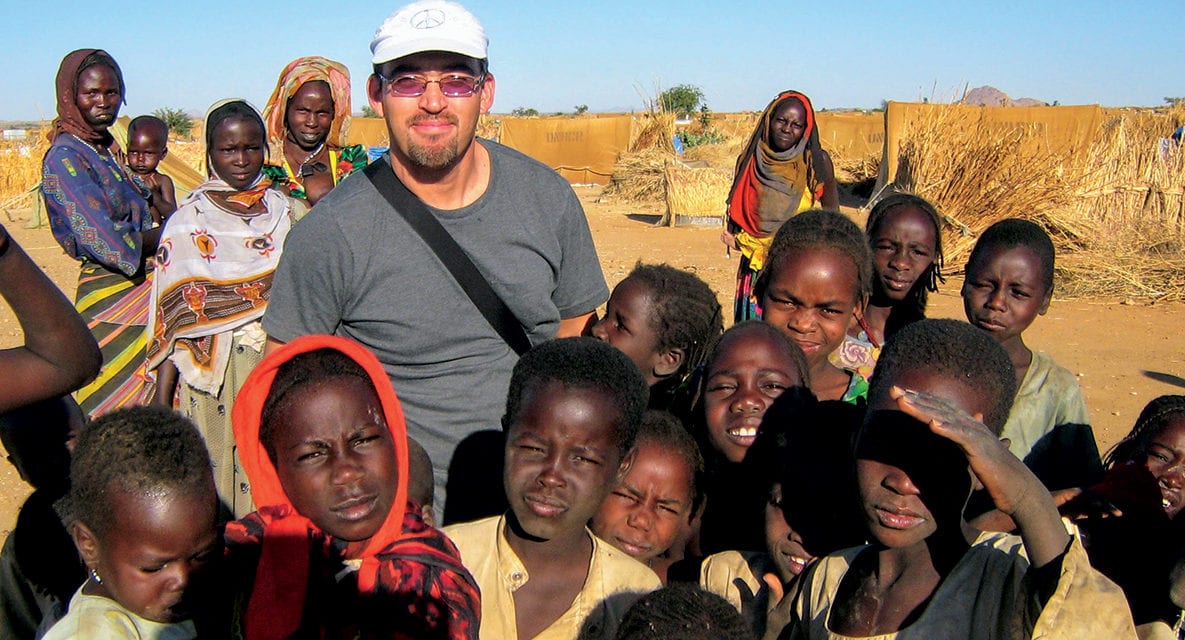
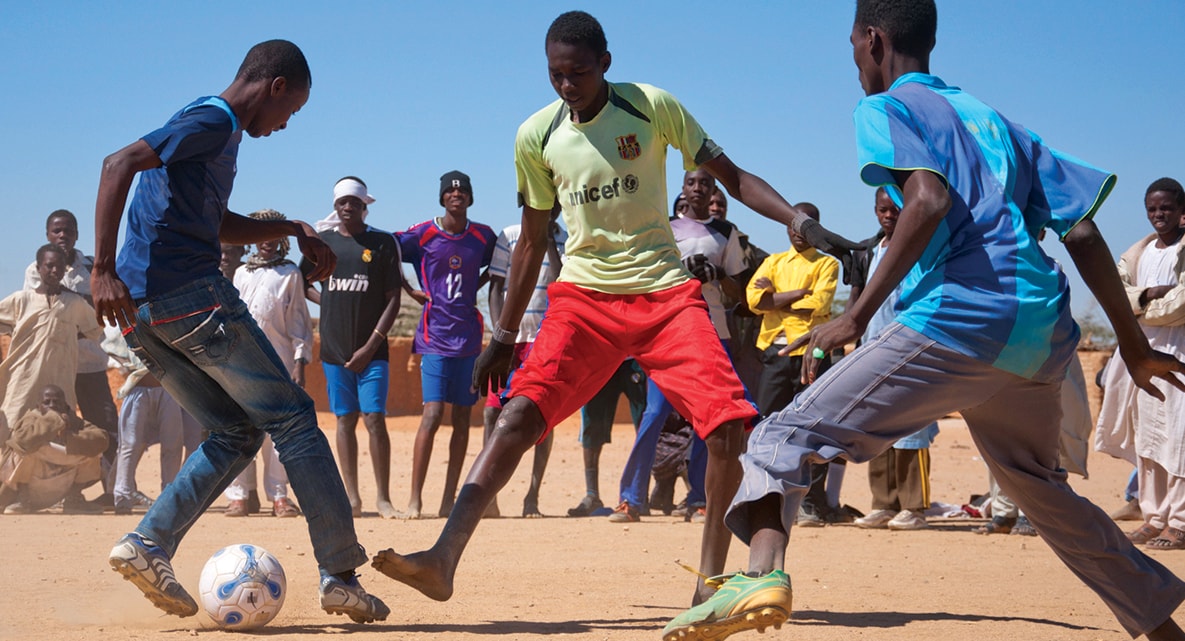
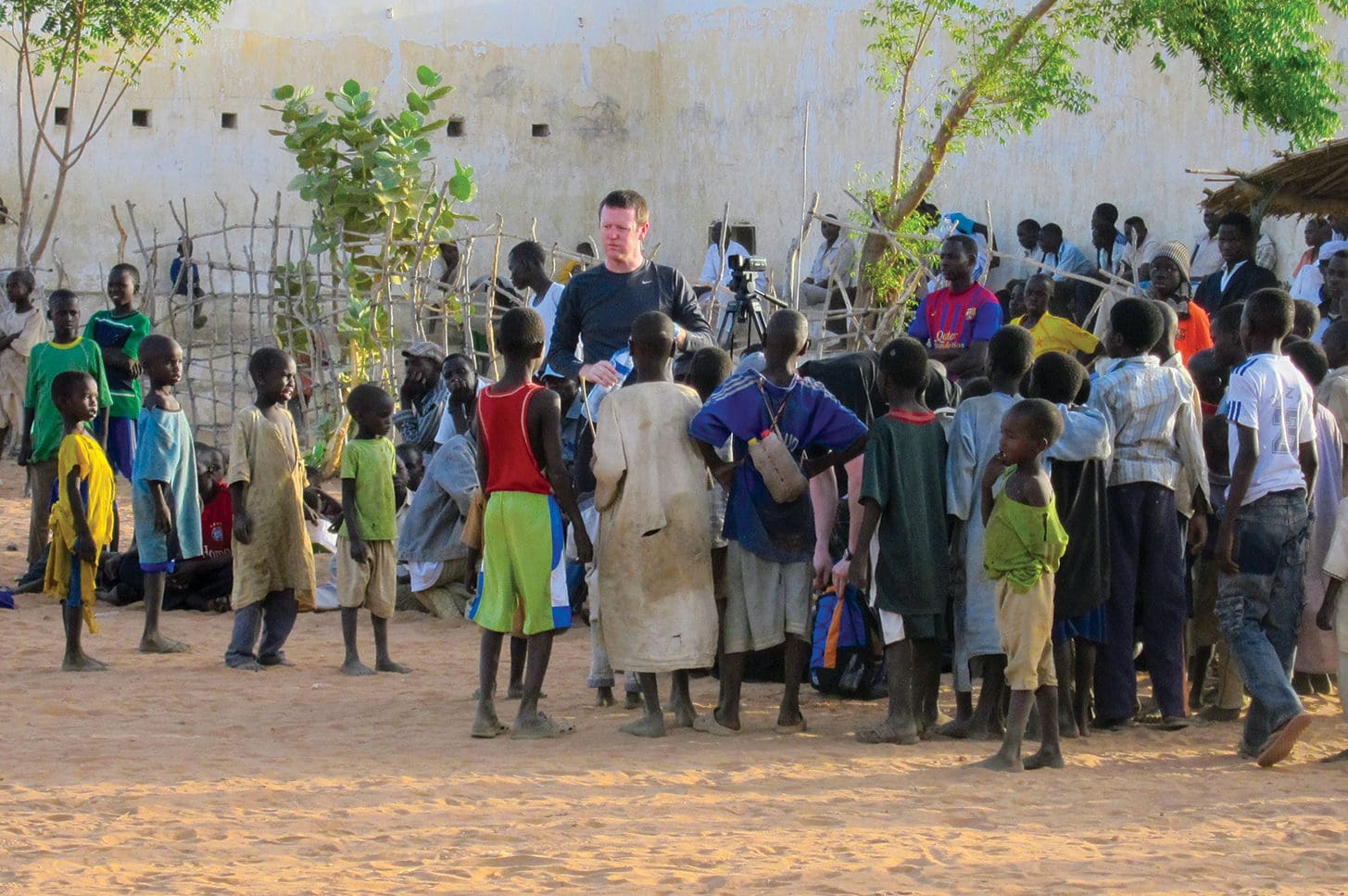
Gabriel Stauring is a humble man, but to many he is a real-life superhero. He is not a professional athlete or celebrity who can call on vast resources to inspire or enact change, but he is driven by a deep desire to help others. His is a story of the power of kindness, which he has proved is a resource that can move mountains and change lives.
This is also a story about the power that sports have to heal us, unite us and simply bring us joy—even in the face of unbelievable hardship. Gabriel’s genius was combining those powers through a love of soccer—or football, as it’s known in many countries. He used soccer as the bridge to cross continent-sized barriers and unite a small South Bay beach community with a desolate refugee camp in Darfur. In the process, he helped uplift the lives of people the world seemed to have forgotten.
It all began in 2004 while Gabriel, a social worker and advocate for children who have been abused and their families, was driving home from his family visits. As usual, he was listening to the radio and had been enthralled and deeply moved by a weeklong NPR series about the 10th anniversary of the genocide in Rwanda.
“It just hit me so hard. I was shocked to hear that 800,000 people had died in 100 days,” he remembers. “I was listening to in-depth stories of survivors and their perpetrators, and how the world did nothing. I felt a mix of guilt and anger.”
Around that same time, genocide was happening in Darfur. The stories Gabriel heard were hauntingly similar to Rwanda, and he knew he had to do something.
“In my current work, I visit abused children and their families, sit with them and hear their stories. I try to identify strengths within the family and the community, and connect them with protective factors that would make the family healthy and whole again.”
Gabriel felt that his skill set could be helpful in Darfur, but the geographic and logistic challenges were enormous. However, the seed of his life’s mission had been planted.
Gabriel’s early years helped shape his empathy for people who had to cross barriers. He grew up in Mexico from age 5 to 15, along with his five siblings. When his father passed away in Mexico, the rest of the family moved back to the U.S.
“Crossing borders is the foundation of who I am,” he says, “changing perspectives and not necessarily being from one place or another.” He and his family had a two-year stint in Texas before moving to California in 1984. He has called the South Bay home ever since.
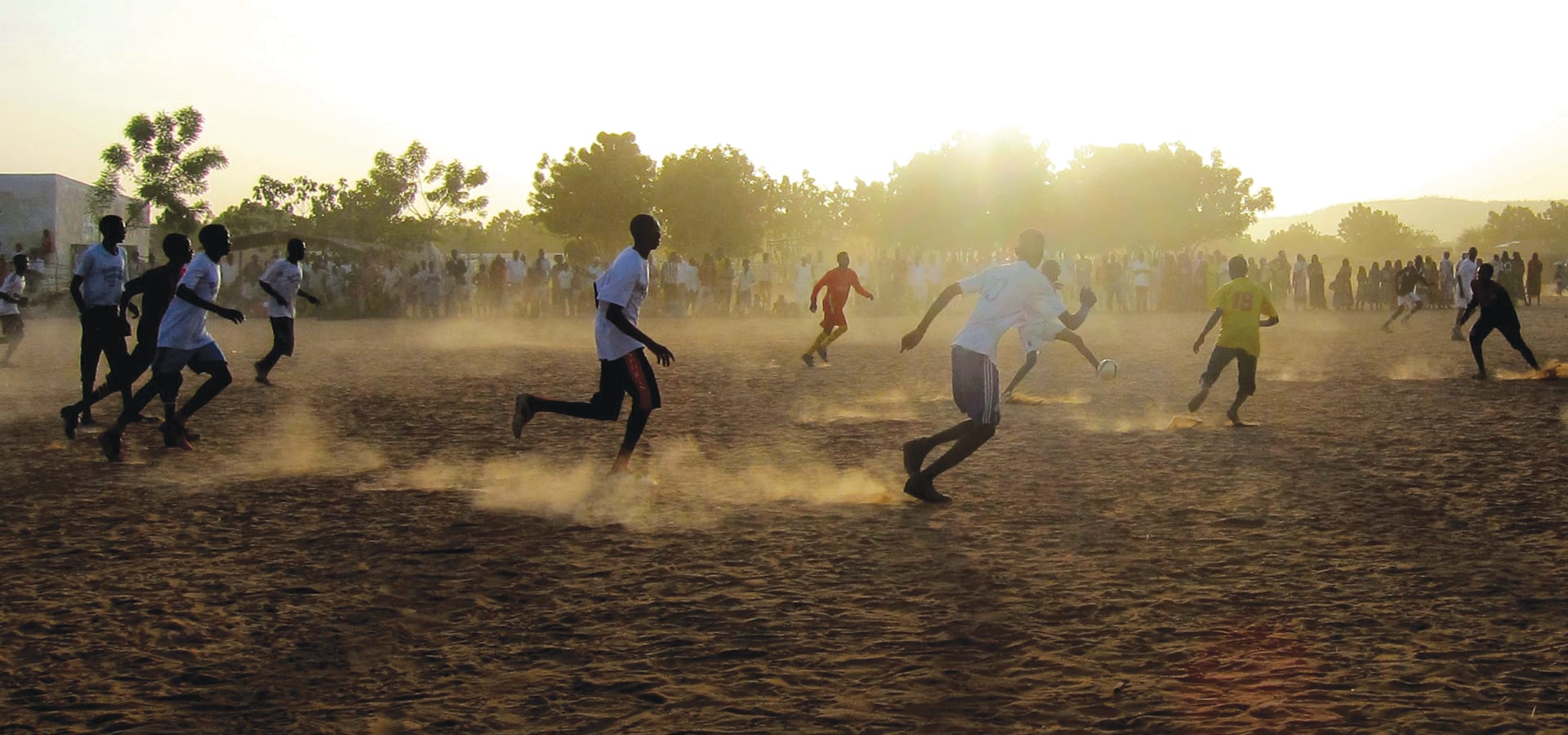
Reflecting on his own experience moving from one country to another, Gabriel knew that the enormity of the genocide could overwhelm people’s capacity to connect with the situation in Darfur unless they had a personal connection. Undeterred, he got to work researching and quickly became connected with others who were just as passionate about trying to make a difference there. Within a year, he was on a plane to the Chad-Sudan border with an amateur crew that had never traveled to Africa before.
Gabriel remembers, “We didn’t know what we were doing, but in a way that helped us because our only objective was to go there, sit with the refugees, listen to them and bring back their stories. We wanted to put a face on the numbers and make it personal.”
At that time in 2005, the plan was to make just one trip. Getting there was truly a grassroots effort. His first flight was paid by his sister’s air miles, and money was raised through bake sales and other small community events. That humble beginning evolved organically into the nonprofit iACT, which Gabriel founded. Since that first trip to Darfur, Gabriel has made 30 more. Helping refugees has become his calling.
He had done research, of course, but setting foot into a refugee camp was life-changing for Gabriel. “I was hit so hard with the enormity of it as I walked into those arid desert camps in the middle of nowhere,” he says. “I was witnessing 30,000 people living in tents as far as the eye can see. I realized as I started walking around that these were all regular people just like my family. What resonated in me when talking with them were the same feelings I had when visiting my families in the U.S. who had experienced shock or trauma. It was just a different scale.”
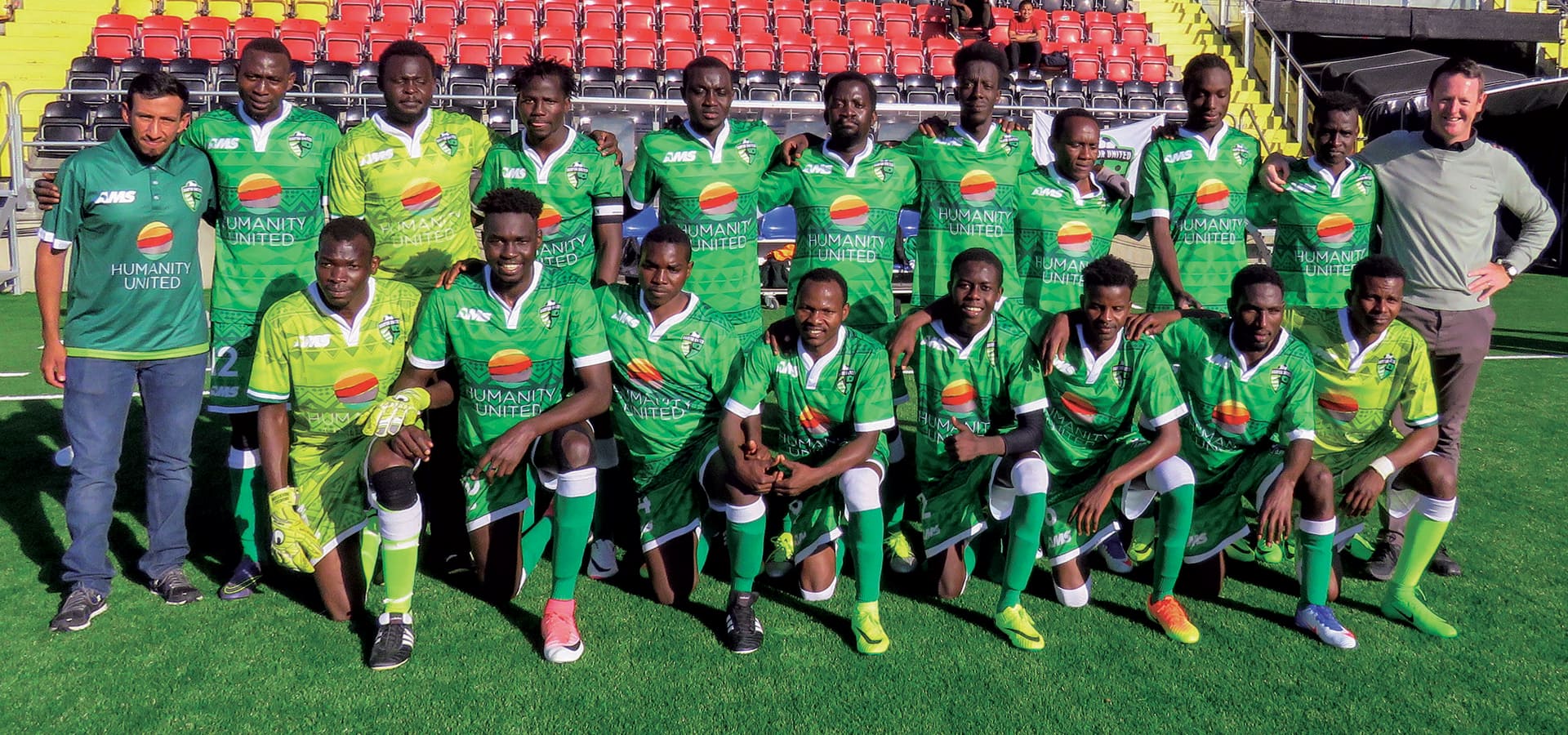
From that very first trip, Gabriel saw the potential for soccer to help people heal from their monstrous trauma. “I was looking into the eyes of people who had just experienced horrific and unimaginable violence committed against their family and members of their community,” he shares. “They had witnessed the destruction of their villages. Yet somehow when I brought out a soccer ball, all of that was gone. In that moment they weren’t victims anymore; they were survivors. They weren’t refugees; they were footballers.”
Soccer allowed them to experience the joy of playing again. This was the aha moment that spawned the idea to bring that joy into the most destitute of places through soccer. On each trip back to Darfur, Gabriel and his crew took bags of soccer balls, listened to people’s stories and shared the stories when they returned to the States. “It was never enough, but it did make a difference,” he says.
By 2011 Gabriel was doing this work for Darfur full time through iACT. The main focus for the team was advocacy: sharing stories and creating awareness and action to change conditions in Darfur.
It was around this time that they heard about a World Cup for non-FIFA teams that would take place in lraq. At first the idea of creating an all-refugee soccer team in the middle of the desert—with no passports or papers and in one of the most corrupt countries in the world—seemed impossible. Gabriel jokes that their advantage was actually their naivety. If anyone knew what they were up against, they may not have tried.
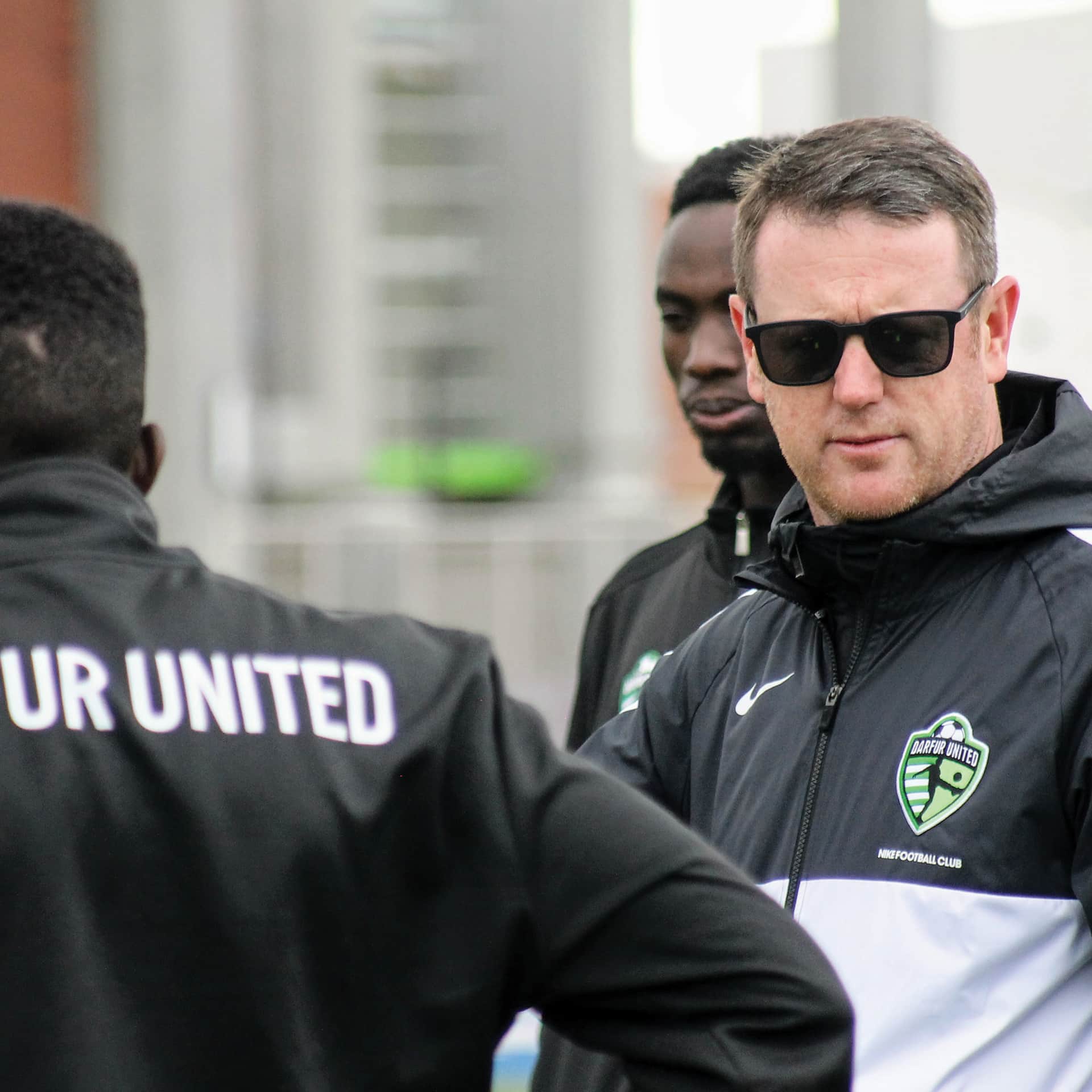
Word got out in the South Bay about what they were trying to do, and the community began to step up. Alex Nuttall-Smith, whose daughters were already collecting soccer balls for charity, became a major contributor by taking on the important role of athletic director. Mark Hodson, current director of local soccer club Beach FC (and at the time also the coach of Gabriel’s son at Manhattan Beach’s Sand & Surf), agreed to meet with Gabriel and his wife, Katie-Jay, over breakfast to help advise them.
By the end of that meeting, they all knew Mark was the best person for the task. Mark went home to confer with his wife, and she told him he had to do it … even though it meant leaving her and their 2-year-old daughter behind for a while. The next day Mark signed on as coach and committed to making the trip to Darfur.
Gabriel says it is all about family. “Mark and I wouldn’t have been able to do it without the support of our families. Having kids was the connector and the motivating factor. It was the notion of what it might be like being a parent out there in the middle of the desert, totally forgotten and thinking nobody cares.”
Upon setting foot into what he describes as “hell on earth,” Mark felt overwhelmed with emotion to see these beautiful people so happy to see him. As a relatively new father himself, he was haunted by the visions of seeing 2- and 3-year-old children wandering around in the dirt all by themselves. He realized that the parents of these children were doing the best that they could with what they had been given. They were extremely limited in providing adequate nourishment and protection for their children, and this had a lasting impact on him.
Every day, as he trained with the team and got to know the community, he was awestruck by the resilience of these people—that despite their trauma and living conditions, they kept on persevering. Soccer gave him the opportunity to bring a bit of hope.
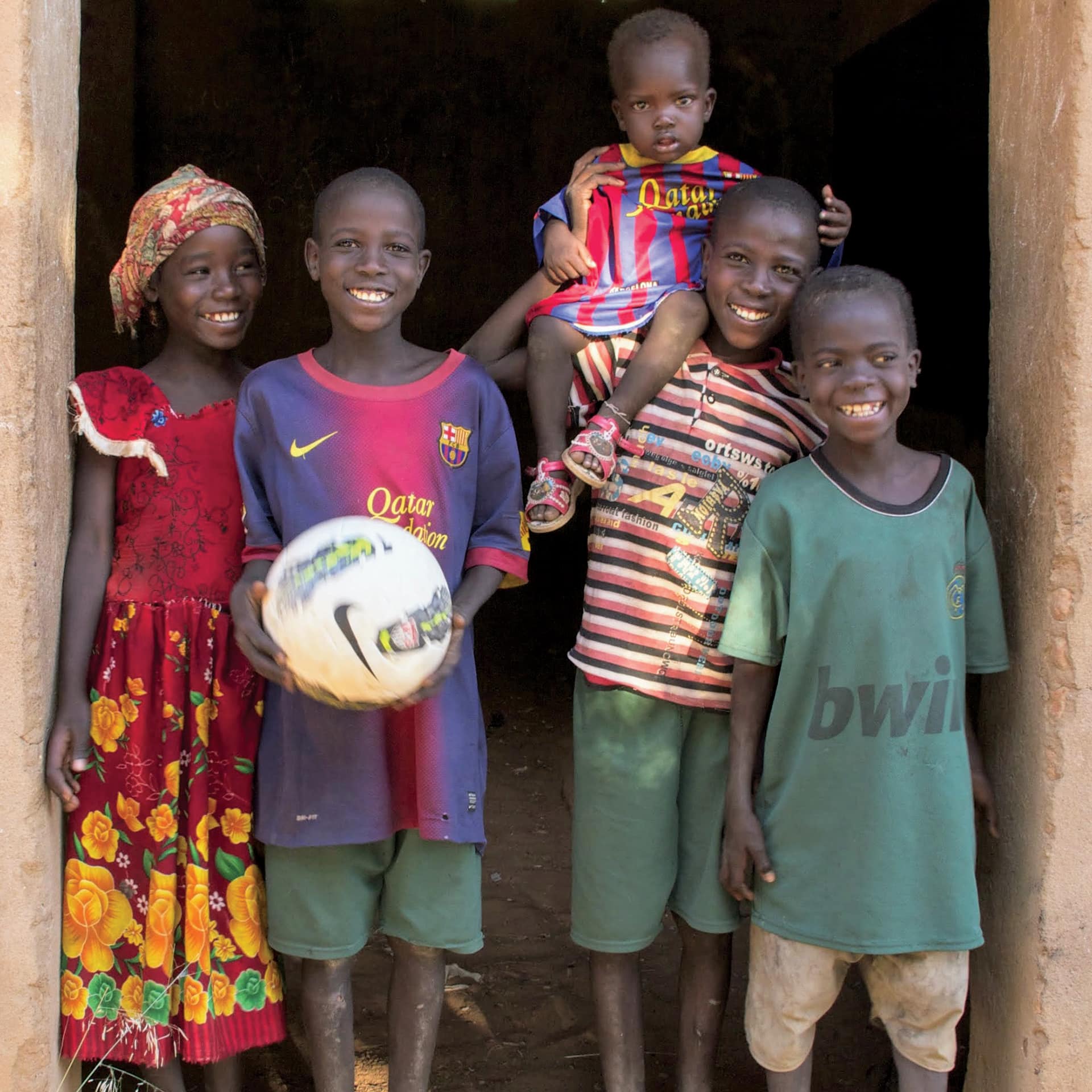
They wanted to create a team selected from the best players from the 12 refugee camps on the Chad-Sudan border and take them to compete in Iraq (another place that had experienced genocide). All the logistics were unbelievably difficult, and they had no money to put together a squad. They had to somehow get papers and permits for the refugees to travel. They had to pay and organize flights for the refugees from Eastern Chad to the capital, and then all the way to Iraq.
Miraculously, although distanced in virtually every other way, most of the money came from the local South Bay soccer community. Because it was soccer, people who normally might not pay as much attention to humanitarian issues on the other side of the world felt empowered and connected. People also love an underdog story, and this team fit that theme to the extreme.
The obstacles they faced with the government in Chad and at the United Nations were eased somewhat by their interactions with the people there, as well as the shared love of soccer across the world. Most responded first with curiosity and then with a sense of awe at the undertaking.
On the playing field the challenges were also great, but the leadership team was up for it. Gabriel says of Mark, “He was made for this. Even if I had the money to pay a coach, I don’t think I could find a better person for the job. Mark got out of the SUV and stepped onto a sand field. Even without speaking the language, he managed to orchestrate 60 players for tryouts. He has complete respect for each person, treating them as individuals with full power and agency, and that was beautiful to see. In putting together the team, he knows football and knows how to pick good players, but he immediately embraced the idea that these young men were going to become leaders and become something great in their own community. He didn’t necessarily pick only the best players. He chose the men who were going to represent Darfur and speak for their people and all refugees of the world, in a way that the other players from other teams didn’t have to.”
Darfur United Football Club was born. For the refugees, this experience meant so much more than the act of playing. It created a sense of belonging and hope. With all the death, destruction, rape and genocide in Darfur, this gave the community something positive to rally around. The overwhelming sentiment: Now we belong to the world.
Most of the players had escaped from small villages in Darfur when they were 10 or 12 years old. Winning for this team was getting them on a field. Mark made his selections, and the team was getting ready. They were actually going.
Some of the challenges were unique. Not only had the players never flown on an airplane or stayed at a hotel; they had never even played on grass or worn cleats. They came from camps where they were eating rationed food for nine years, so to arrive at a hotel in Iraq was mesmerizing. They were thrilled just riding the elevators up and down and enjoying their first-ever buffet, piling their plates with every food item imaginable.
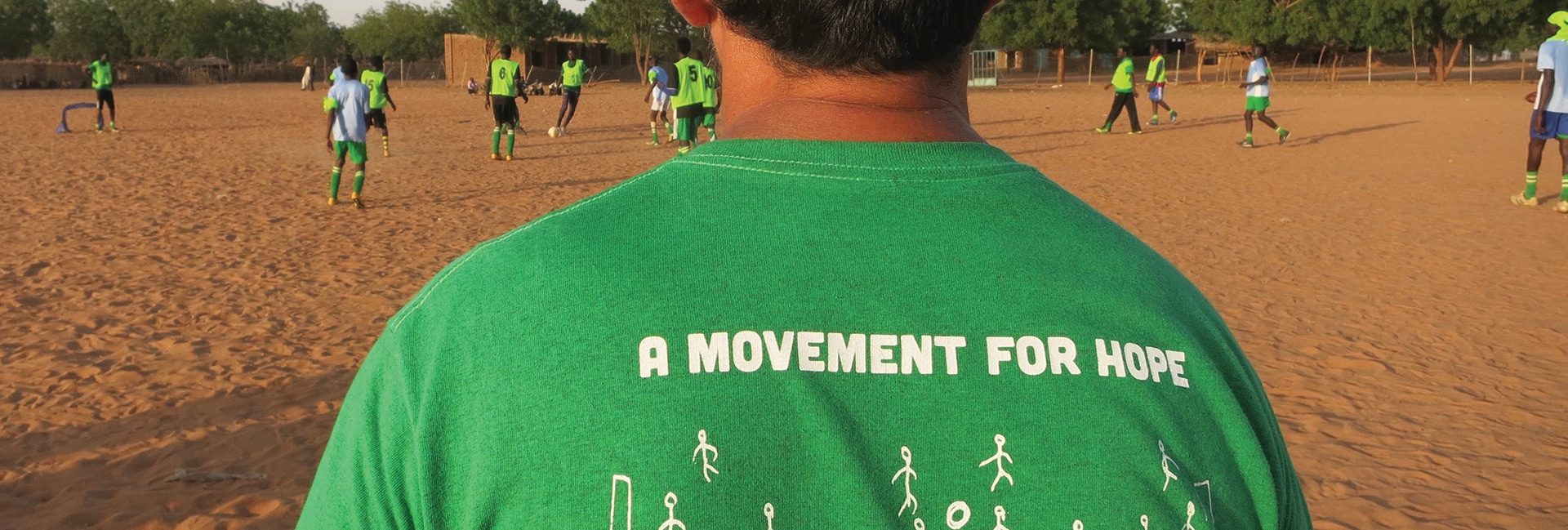
The goal was to get Darfur United to represent their country and compete in a world-class arena. It was never really about winning games. The Darfuris were a new team arriving at the games with little formal training experience and competing against established teams, so the odds of winning were heavily stacked against them. As coach, Mark adapted and made the objective of the tournament to score one goal. They became the beloved underdogs.
Mark recalls a touching moment when all the teams sang their national anthem before the first game. The Darfuris didn’t have one, so the players stood on the field with their hands on their hearts and sang a song that was representative of them, where they had been and where they were trying to go. It was incredibly moving.
As the game kicked off, they were hit by the realization of how much opportunity there is in the world outside what they knew. It was an amazing journey for these genocide survivors from refugee camps in Africa to an international football stage representing their people. They were embraced by the Kurdish people, and the crowd loved them.
Unfortunately, Darfur United lost the first two games heavily. The players became a little despondent, but Mark reminded them of their objective to score that first goal and how far they’d come on their human journey. In the final game, in the 46th minute, Dougom Haggar Moubarak became the first player in Darfuri history to score an international goal. The whole team celebrated as if they had won the World Cup … because to them, it felt like they had.
Mark saw many emotions on their faces, and tears were streaming down his. This goal was not only for this team; it was for all the refugees in Darfur and across the world. Even though they lost the game, that goal meant the players could walk away with their heads held high. They were international footballers. They shone a spotlight on Darfur and gained a large following from fans around the world. They were not only heroes to their people back home; they were an inspiration to so many beyond.
What started as one trip to Darfur has grown into a quest to help all refugees around the world. iAct has transitioned from solely focusing on advocacy to launching full refugee humanitarian programs, including the launch of an award-winning preschool program in various countries. Gabriel and his team have been honored with countless prestigious awards for their tireless work, including the 2013 Peace and Sport Nonprofit of the Year award and the 2014 Beyond Sport, Sport for Social Inclusion award, as well as being short-listed for the 2016 Aurora Prize for Awakening Humanity.
In the same year, Gabriel also presented at the Global Philanthropy Forum’s session on refugee education, at the Global Summit on Childhood (presented by Association for Childhood Education International) and accepted the 2016 WISE Award by the Qatar Foundation for innovation in education. He appreciates this recognition because it shines the spotlight on the problem and brings awareness to the continued plight of the refugees in Darfur and all over the world.
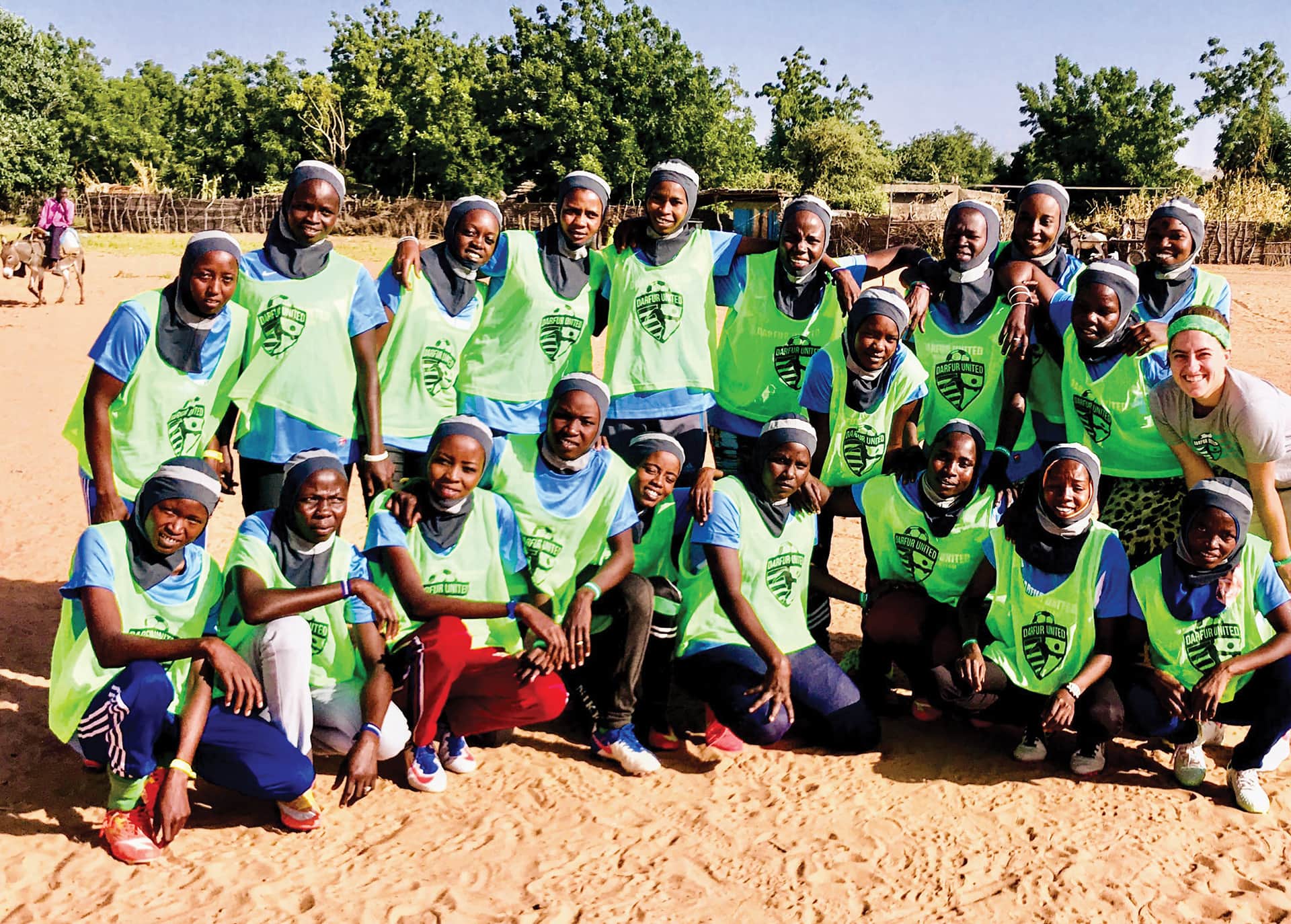
Back on the soccer field, Darfur United was invited to compete in the CONIFA World Cup for teams of nationless peoples in Östersund, Sweden, in 2014. The same leadership group went back to work to put a team together with many of the players from the original team that competed in Iraq. The results on the field were again less important than what happened off it.
Thirteen of the 16 players sought and were granted asylum in Sweden. Today, eight of those players are playing in a league in Sweden and remain active on the DU roster. More recently, they had tryouts in Los Angeles, and Darfur United now has another full roster of Darfuris living in the United States. The team has improved greatly and had their sights on competing in a World Cup in north Macedonia in June, but due to the pandemic that was scratched.
In 2018 iACT focused on empowering women within the refugee camps through the teaching of life skills, hygiene and leadership. They extended that even further to the playing field after hearing Darfuri refugee women speak of their aspirations to play, compete and pave the way for a generation of girls in their community. This proved challenging, as it goes against the Darfuris’ traditions and culture, but they successfully formed the first-ever Darfur United Women’s Team.
Everyone at Darfur United is excited for the future and looks forward to hopefully competing again in 2021. But so much more humanitarian work is needed to shed light and attention on the violence in Darfur, which has been raging for too many years. Even after all these years, the Darfuri people are still waiting for a moment to breathe, a chance to take back their lives and return to a life of peace in their homeland. Until then, angels like Gabriel, Katie-Jay, Alex, Mark and so many others work tirelessly to make their lives better.
Darfur United is so much more than soccer. It is an important acknowledgment of the awful atrocities being committed against humanity and a stand against them. It is a community of joy amid terrible pain and a symbol of the determination and resilience of human beings. Above all, it is a shining beacon of hope.
You can stream a film about Darfur United, Not Just Football: From Genocide to the World Cup, at iact.ngo






